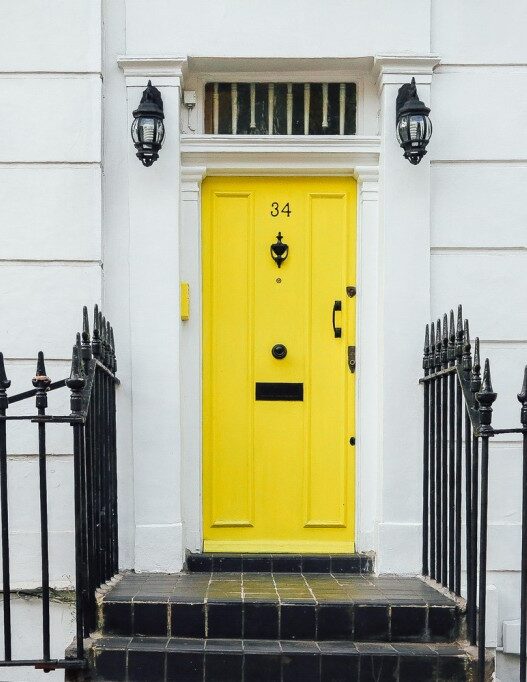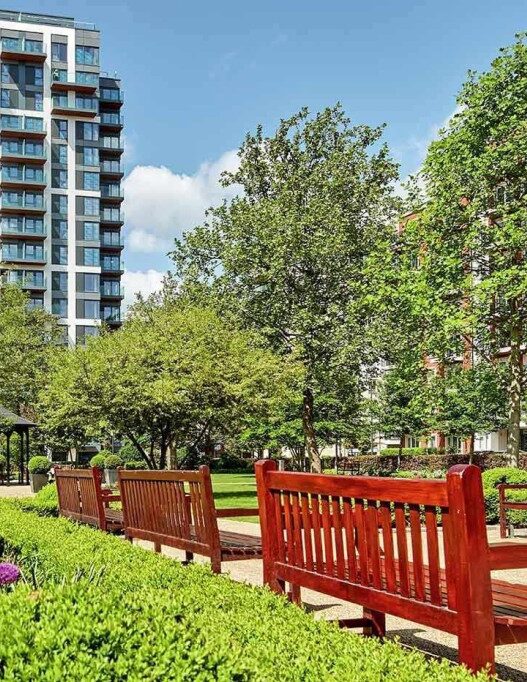Melanie Buck-Hansen, an independent British housing historian and author, talks about her work and the history behind (almost) every front door. She explains the process of discovering extraordinary stories and reveals some of her favorite discoveries in London and around the UK.
Melanie began her career as a housing historian in 2006 after applying for a newly created role at an international real estate company. She researched the company's real estate history, which earned it coverage in national newspapers and gave it special appeal to buyers.
books and tv
After the publication of her first book (House Histories: The Secrets Behind Your Front Door) in 2011, Melanie moved on to freelance work with the title of her second book (Historic Streets and Squares) and her work as a lecturer and consultant. It has brought many new opportunities. , speaker, and more recently a television host.
“I just finished working as a historical consultant on Phil Spencer’s 100 Homes: A British History,” she explains. “This show covers the history of how we lived, from caves to state-of-the-art homes.”
Having regularly provided insight on camera for Channel 4 series, worked as a consultant on the BBC2 show A House Through Time and contributed to many other programmes, Melanie has enjoyed the added challenges that a job in broadcasting brings .
“It was actually fun,” she says. “The most difficult part in front of the camera was trying to sound appealing while remembering a lot of facts.”

ordinary people, extraordinary stories
However, the majority of Melanie's work consists of commissions from individual homeowners. The history of the house will make an unusual gift for a spouse or friend. Parents are also sometimes given the history of their parents' home when they move out and downsize their home after their children leave the nest. Surprisingly, it's probably a rare house that doesn't reveal some interesting secrets from its past.
“This is the main feature of a normal house,” she says. “Often they are simply Victorian or Georgian terraced houses. I uncover all the scandals, shocks or unsung heroes associated with those houses. Over time and through the history of the houses An amazing story of lost and seemingly ordinary people. There's something in every home!
“I must say some are much more exciting than others. At Mayfair House, which I have just completed, one of the former residents is suspected to be the illegitimate child of King George I, and her sons Turns out they were both high-ranking officers in the American Revolutionary War. The owners loved it.
Marylebone special operations

“And one that often comes to mind is Orchard Court in Portman Square, Marylebone.The house block itself was only built in 1929, but during World War II one of the flats was built by the Special Operations Executive. It turned out that it was being used by the French sector, who used the apartment to recruit spies who would then be trained and parachuted into occupied France to assist local resistance fighters. Ta.”
Melanie's requests range from a single page of information about a home that she researched over several days to an entire book of weeks of research that homeowners proudly gift to all their friends. Clients will be informed of the availability of information about their home and the work will be budgeted accordingly. “Sometimes records are missing or details are difficult to uncover, so it can take some time to piece everything together.”
research process
So where do you start when it comes to learning about a property's history? Melanie spends a lot of time first in local record offices and archives, but for properties in the capital, she looks at the National Archives and the City of London Archives. I will also visit.
“Go to your local archives and look at census returns, electoral registers, fee registers, trade directories, maps, and tax records,” she explains. There may be drainage plans where the home has undergone renovations or changes over time, and there may be building plans.
“Then you get into people's stories, and that involves a lot of other resources. Once you know people's names, you start finding out who they are. They fought in World War I. Who did they marry? What's their personal story? I mean, it takes you on a whole different journey.”

“There are only a handful of us housing historians. We have a small informal group.”
Melanie admits that spending time poring over manuscripts in dusty archives can make the role of a residential historian quite a lonely one, but dealing with this very I found a modern way.
“I’m a huge fan of Twitter,” she laughs. “I think it works very well for historians and writers. There are only a handful of us housing historians, and we have a small, informal group. We work in an office, we go out to do research, we have a small group of There are many experts based in other countries with similar interests.
“Twitter makes it easy to connect and make really good connections. I get to retweet different people and see a lot of articles that I might not have come across otherwise, which is a lot of fun. is.”
The demand for Melanie's unique research skills shows no signs of slowing down. The second edition of House Histories will be published in November, and she revealed that a third book has also just been ordered. Although the exact details have not yet been revealed, she may provide us with one clue.
“It’s about the house!”
To find out more, see examples of Melanie's work or inquire about commissions, visit www.house-historian.co.uk or follow her on Twitter: @HouseHistorian.
























